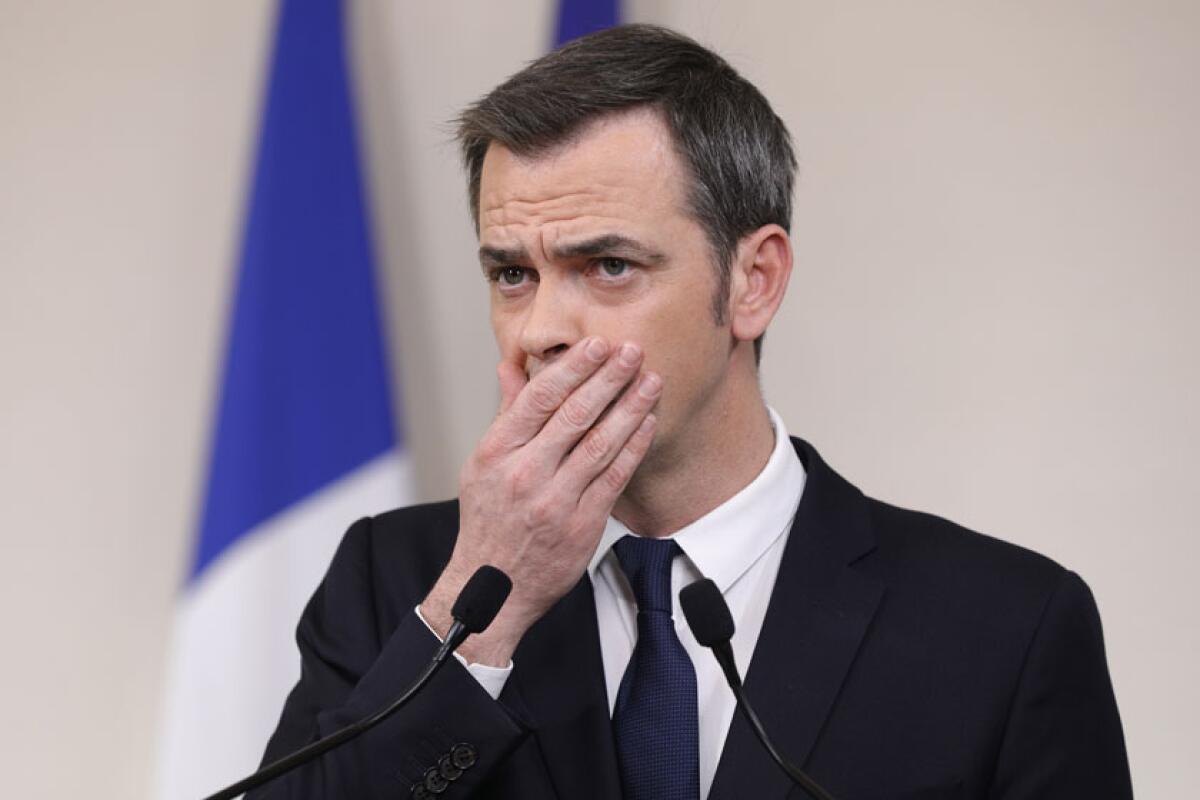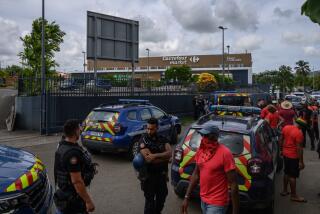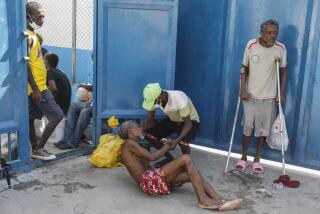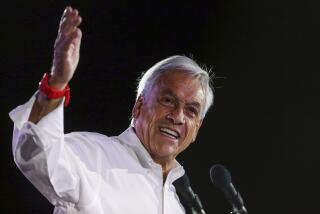French police search homes of top officials in coronavirus probe

- Share via
PARIS — French police searched the homes of the former prime minister, the current and former health ministers and other top officials Thursday in an investigation of the government response to the COVID-19 pandemic.
The dawn searches, confirmed by the Health Ministry, come as France is fighting a resurgent epidemic that has filled a third of the country’s intensive care units with COVID-19 patients and is again putting Europe to the test. President Emmanuel Macron announced curfews on about 20 million people in the Paris region and eight other metropolitan areas starting Friday night to try to slow the tide.
The investigation threatens to rekindle public frustration with a government that’s been accused of lying to the public about mask stocks, underestimating testing needs and overestimating France’s ability to vanquish the pandemic — not once, but now twice.
About 1,000 protesting nurses, doctors and other public hospital staff marched through Paris on Thursday to demand more investment, staff and higher salaries after years of cost cuts.
“We are tired!” read multiple banners.
The searches “will make the people’s mistrust grow,” said Dr. Ludovic Toro, who was among the doctors, COVID-19 patients, prison personnel, police officers and others who filed more than 90 legal complaints in the spring over the government’s management of the pandemic.
A special court has ordered an investigation over the government’s handling of the coronavirus crisis.
Among those whose homes were searched were former Prime Minister Edouard Philippe; Health Minister Olivier Veran; his predecessor, Agnes Buzyn; the head of the country’s national health service, Jerome Salomon; and Sibeth Ndiaye, a former government spokeswoman. Veran’s office was searched as well.
Salomon abruptly canceled an early-morning live interview on the national BFM-TV because of “personal reasons,” according to the network.
Jean-Luc Reitzer, an opposition member of parliament who was hospitalized with a severe case of COVID-19, said he was shocked by the searches.
“Do our citizens seriously believe that the shortages, which were real, were voluntary?” he told BFM.
Toro still has no high-protection masks for his practice, nine months after the first virus case was confirmed in France. And he says he is seeing more patients with COVID-19 symptoms now than he did in the spring.
He and other doctors accuse the government of lying to the public earlier in the year, when top officials told the public that masks weren’t necessary even as they struggled to secure enough supplies for hospitals amid surging global demand.
“They should have said that there were no masks. That was the real problem,” he said. “They refused to tell the truth.”
The government has said that its early guidance on not wearing masks was based on limited understanding of the new coronavirus at the time.
Asked about Thursday’s searches, current Prime Minister Jean Castex wouldn’t comment on the investigation but said he had total confidence in the health minister to do his job.
The government continues to send mixed messages about the virus. In addition to the curfew in several cities, the prime minister on Thursday announced a nationwide ban on public weddings, even as the president encouraged people to travel as usual for upcoming autumn school vacations.
The government announced it will deploy 12,000 police officers to enforce the curfew and will spend an additional $1 billion to help businesses hit hardest by the latest virus restrictions.
“Our compatriots thought this health crisis was behind us,” Castex said. “But we can’t live normally again as long as the virus is here.”
France is registering nearly 180 virus cases per 100,000 people every week, with 22,591 total new cases Wednesday. It has reported one of the world’s highest virus-related death tolls, at more than 33,000 lives lost.
More to Read
Sign up for Essential California
The most important California stories and recommendations in your inbox every morning.
You may occasionally receive promotional content from the Los Angeles Times.













